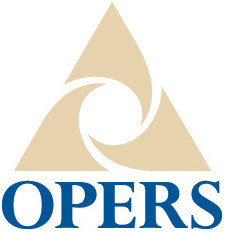Most OPERS (Ohio Public Employees Retirement System) plan participants should have seen an increase in their monthly premiums in 2015. The increases were based on their retirement date and years of service. For their own premiums, retirees enrolled in Medicare Parts A & B should have seen an average monthly increase of as much as $11, and non-Medicare a monthly premium increase of as much as $32. Both Medicare and non-Medicare retirees should also have seen additional cost increases for covered dependents.
OPERS, additionally, announced that participants would see changes to their pharmacy coverage impacting certain co-pays, co-insurance, out-of-pocket costs and deductibles. Pharmacy coverage changes have occurred and a new prescription drug formulary was introduced in 2015. Such basic changes have included the annual deductible for brand medication having increased from $50 to $100. Additionally the Medicare out-of-pocket maximum has increased from $4,550 to $4,700 and the non-Medicare out-of-pocket maximum is decreasing to $3,250 from $4,550.
The 2016 changes for OPERS revolve around the OPERS Medicare Connector. Retirees who are eligible for Medicare Parts A & B will use the Connector to select a plan that will supplement traditional Medicare. However, the OPERS Connector, which starts in 2016, has appeared as a “nightmare” for those who are already in a nursing home or assisted living facility, in addition to a time-consuming and confusing process for most retirees.
Most retirees will receive a monthly Health Reimbursement Account (HRA) allowance to be used toward the premium for their choice of individual Medicare plan. The amount of your HRA allowance, $337 or more per month, depends on your years of service and age when you first enrolled in the OPERS health care plan. To receive the HRA allowance, you must be enrolled in both Medicare Parts A & B, and enroll in an individual Medicare medical plan through the OPERS Medicare Connector.
However, the existence of such an HRA for those retirees who are also receiving Medicaid could make for some difficult times ahead. As the HRA is presently described, it would appear that this reimbursement account does not work for Medicaid compliance as it would appear a countable asset for Medicaid eligibility purposes. Thus the HRA could, in effect, push many retirees over their allowable resource limit for Medicaid purposes.
Additionally, this plan will produce other difficulties for those retirees in nursing homes and assisted living facilities as it requires them to submit forms for reimbursement each month for portions of their coverage, including any premiums they are required to pay. Moreover, a retiree must obtain the insurance on his or her own with the assistance of a Connector representative.
Some retirees have felt misled by OPERS as to their benefits per the prescription drug coverage found under their Medicare Part A plan. Retirees, who have utilized the prescription drug plans under Medicare Part A, began receiving form letters from OPERS on November 18, 2015 informing them that their prescription drug plan coverage would no longer be available beginning on January 1, 2016. This information was previously undisclosed to them. Moreover, when Connector representatives were asked about a similar drug plan retirees could change to under the Medicare Advantage Plan, those questions went unanswered. Therefore, many retirees have found the process confusing, and cumbersome, and that their real concerns are not truly being addressed by OPERS. Many have pointed to the OPERS Medicare Terms Crossword Puzzle and Word Search Puzzle sent to them, within their Connector readiness packets, as evidence to the extent of how little OPERS respects their time and further evidence of how OPERS is demonstrating a lack of seriousness as to providing retirees with well-thought answers to their concerns.
Many retirees have felt that OPERS has glossed over the real facts, especially regarding the Part D changes. For many individuals who are taking prescription drugs, for which there is no generic alternative, those retirees will find a significant impact on their wallets as there will be a lack of coverage from other sources. For example, if your current plan limits your out-of-pocket costs for a prescription drug with a non-generic alternative to $460.00 annually, you could potentially have to pay as much as $4,850.00 under the new plan for 2016. This cost will continue to rise each year until 2020. Those previous exceptions that were covered will probably not be covered as such. Thus, it would appear that the annual cost for overall health care coverage, and difficulty in retirees’ ability to access their plans, will increase annually while the contribution of OPERS will decrease annually.
Many retirees have also felt the contributions OPERS will make to their HSA each month will not be sufficient to cover their drug expenses let alone pay for any medical insurance premiums. Additional frustration has also occurred with many retirees over what appears to be a lengthy process for many in speaking with the various Connector representatives. Many retirees have reported conversations lasting in the range of two to three hours, with an end result of uncertainty as to what is the best plan for them and whether their questions and concerns were truly addressed. Therefore, many retirees have found the process to be both confusing and misleading to date.
If you have questions regarding the OPERS Medicare Connector, you can call OPERS at 1-800-222-7377, or review their website at www.opers.org.
Keeping you informed are the trusted attorneys from Browning & Meyer Co., LPA. Please contact our law office with any questions about OPERS.
